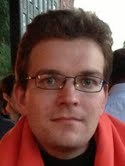
Clement Grene is a Ph.D. Candidate at the University of Edinburgh. His area of research is New Testament Biblical Studies, with a particular emphasis on the narrative or literary critical approach. He is currently analyzing the roles of Peter and Judas in the New Testament with a wide-ranging analysis of the portrayals of cowards and traitors throughout ancient literature. His other interests include historical Jesus research, magic in the ancient world, and early church history.
Listening to S. Brent Plate’s insights on the comparison between religion and film, and in particular on the role of planning in film, calls to mind the work of the filmmaker David Lynch. Lynch is an adherent of Transcendental Meditation (TM) -a spiritual discipline and movement founded by Maharishi Mahesh Yogi, best-known in the West for his association with the Beatles.
"...Segal touches on something rather interesting when he comments that Freud’s inner circle of brilliant acolytes all outgrew and turned against him, one after another, while Jung’s mediocre followers remained devoted to his methods even after his death. Is there an implied criticism of Jung there, that he didn’t dare surround himself with people who could challenge him intellectually, as he had challenged Freud?"
This work is licensed under a Creative Commons Attribution- NonCommercial- NoDerivs 3.0 Unported License.
The views expressed in podcasts, features and responses are the views of the individual contributors, and do not necessarily reflect the views of The Religious Studies Project or our sponsors. The Religious Studies Project is produced by the Religious Studies Project Association (SCIO), a Scottish Charitable Incorporated Organisation (charity number SC047750).